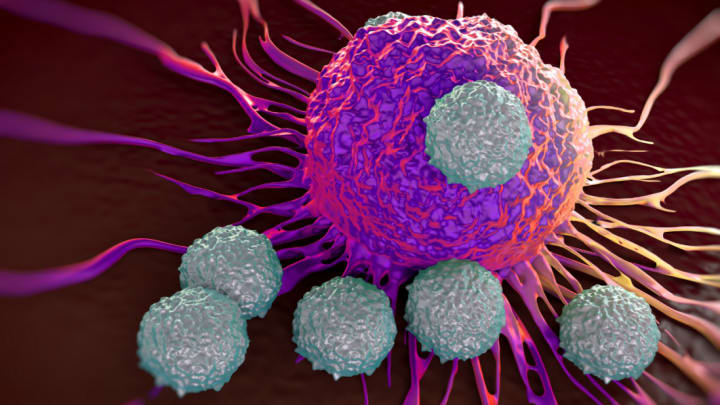Researchers have found a way to train the immune system to eradicate cancer cells and “remember” them in case they try to return. A report of the technique was published today in the journal Science Immunology.
Cancer is a stealthy invader. Rather than facing the body’s defenses head-on, it manipulates the sentries of our immune system, shutting them down or even turning them against us.
One commonly hijacked sentry is called the CD4+ T regulatory (Treg) cell. When they’ve been bamboozled by cancer, Treg cells tell our defenses to leave tumors alone. So if we could find a way to shut those Treg cells up, our immune systems would, theoretically, treat cancer like the intruder it is. The problem is that Treg cells are themselves kind of slippery and hard to target with drugs.
One possible way in is a molecule called LAP, which has previously been linked to worse outcomes for people with cancer.
To learn more, researchers examined interactions between Treg cells and LAP in mice with melanoma, colon cancer, and brain cancer. They found that zapping the molecule with special anti-LAP antibodies did the trick, effectively shutting the hijacked cells down so the immune system could do its work. Mice treated with these antibodies had lower levels of Treg cells and cancer cells.
Better yet, when the researchers mixed the anti-LAP antibodies with tumor vaccines, they discovered that tumors wouldn’t grow, even in mice exposed to cancer-causing proteins. The effects of this cocktail lasted for months.
Best of all, the treatment seemed to create “memories” of the tumors in the rodents’ immune systems, enabling them to recognize cancer cells more quickly and prevent relapse.
Before you get too excited, we should mention a few things about these experiments. First, as we’ve said before and will say again, mice are not people. Second, the treatments were tested under the mice’s skin, not in the places where these tumors would naturally grow.
Still, the researchers say, the anti-LAP molecules are a good step, and they are eager to explore them further.
